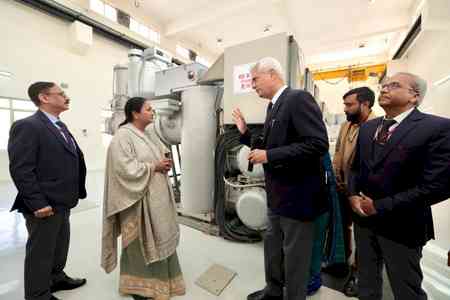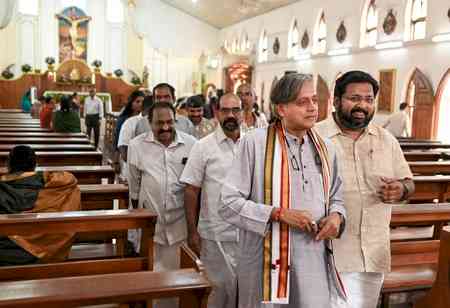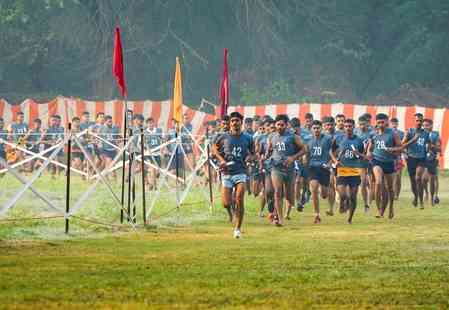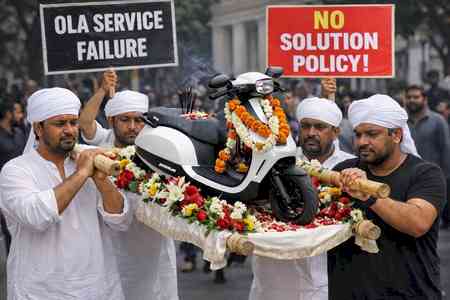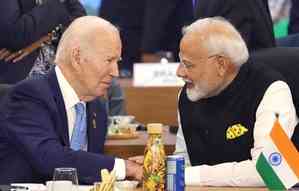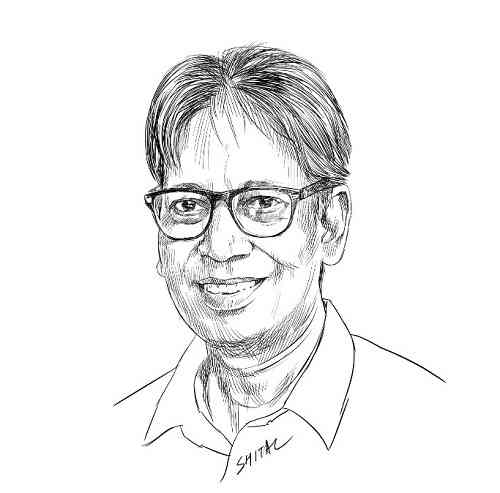Collaboration with friendly countries can bring order in Indo-Pacific region: Indian Navy chief
Indian Navy chief Admiral R. Hari Kumar underlined on Wednesday that it is impossible for any one country to ensure maritime security and therefore, there is a need for cooperation, collaboration, and interoperability so that peace and order can be collectively maintained in the Indo-Pacific region.
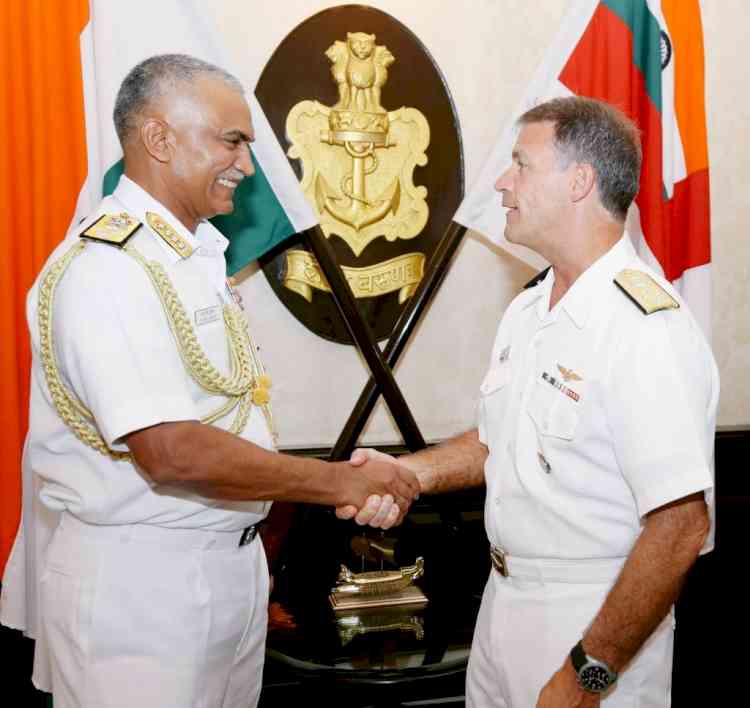
New Delhi, April 27 (IANS) Indian Navy chief Admiral R. Hari Kumar underlined on Wednesday that it is impossible for any one country to ensure maritime security and therefore, there is a need for cooperation, collaboration, and interoperability so that peace and order can be collectively maintained in the Indo-Pacific region.
In his address at Raisina Dialogue, he said: "To enhance maritime security, India has kept up its goal of being the first responder which helps in developing trust, interoperability, exchange of information and good practices, and domain awareness."
Admiral Hari Kumar pointed out that we are in a contested world because of the conflict and the challenge posed by emerging technologies that are emerging, and this offers great opportunities for cooperation and collaboration between like-minded countries.
"We are in a contested world moving on to quite uncertain future and this is primarily because of the conflict we see as well as the challenges thrown in by technologies which are emerging in various domains. The technology indeed has divided us into different blocks depending upon development but it is not a zero sum game," he said.
It asserted that it offers great opportunity for cooperation and collaboration, the Navy chief said, citing two examples.
He said that how the world combated Covid-19 challenges where in all the nations came together pulled in their skills and technology to develop vaccines. Secondly, he said that the International Solar Alliance brought nations together to combat climate change.
The democratic nations always been forthcoming and restrained in the way the technologies are used, Admiral Hari Kumar said.
"At Quad last year there was declaration on the usage of technology where it was said that technology design, development and governance and use need to be worked out," he said.
He said that underlines the principal of democratic values as well as respect for the international human rights.
General Koji Yamazaki, Chief of Staff, Joint Staff of the Japanese Self-Defense Forces, questioned Russia's aggression in Ukraine.
"Russia's invasion of Ukraine is a violation of the international rules-based order; it is an attack on sovereignty and integrity. We must learn from this war. We just acquire capabilities to prevent such events in the future.
"How we use this new technology in cyber warfare, especially in cross-domain operations, will be key. It is important to differentiate between disinformation and correct information. We must clearly demonstrate our will and capability to deal with these emerging threats and have a synergised approach. "
Commander of United States Indo-Pacific Command (USINDOPACOM), Admiral John Aquilino dwelt on China and Russia and threats from the former.
"This is a concerning time when seen from the lens of global security as is visible from the Russian aggression and the attitude of China. We are cooperating with like-minded countries and becoming interoperable to ensure a free and open Indo-Pacific.
"All forms of technology apply to military warfare and we need to prepare with a sense of urgency. Now, cooperation is happening more in the multilateral sphere rather than the bilateral one," he said.
He also said that like-minded nations in the Indo-Pacific have been working together for 80 years. "Our values and interest to keep peace and prosperity in the region is a very good thing," he said.


 IANS
IANS 
